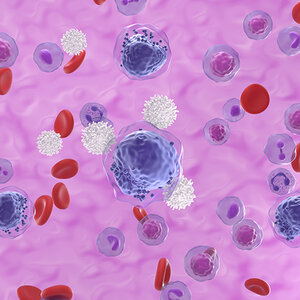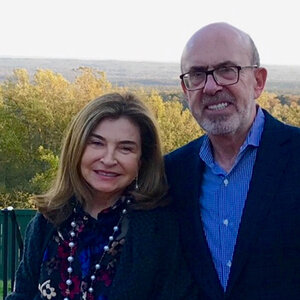MMRF awards $21 million for multiple myeloma research networks

The Multiple Myeloma Research Foundation (MMRF) has announced grants totaling $21 million over three years through its Myeloma Accelerator Challenge (MAC) in support of multicenter translational research networks.
Grants of $7 million each were awarded to three networks to foster collaboration and advance hypotheses for rapid testing in clinical trials, focused on two critical areas of unmet need: optimizing first-line therapy for newly diagnosed high-risk multiple myeloma, and improving identification of high-risk smoldering multiple myeloma (HR SMM), an early, asymptomatic stage that can proceed to active multiple myeloma.
Recipients include Samir Parekh of Tisch Cancer Center at Mount Sinai, who will lead a network that includes Albert Einstein Medical College, Hackensack University Medical Center, Stanford University Medical Center, University of California San Francisco, and Washington University in St. Louis to analyze patient samples at the genomic and immune level and understand the events that drive high-risk multiple myeloma; Pieter Sonneveld of Erasmus Medical Center, who will lead a European network including Erasmus in Rotterdam, Amsterdam University Medical Centers, Julius Maximilian University of Würzburg, and the University of Salamanca in Spain to investigate what makes less responsive, high-risk patients different from other patients with multiple myeloma; and Sagar Lonial of Winship Cancer Institute of Emory University, who will lead a network that includes Atrium Health Levine Cancer Institute, Icahn School of Medicine at Mount Sinai, Massachusetts General Hospital, the Mayo Clinic, Memorial Sloan Kettering Cancer Institute, and Dana-Farber Cancer Institute to develop an improved definition of high-risk SMM through the generation and analysis of new SMM patient data.
“The pace of research needs to accelerate if we are to address the significant unmet needs in multiple myeloma, and the way forward will take collaboration and funding,” said MMRF president and CEO Michael Andreini. “Bringing together diverse teams through our MAC grants that normally have many barriers to working together will bring greater focus and scale to these research priorities, yielding more timely and impactful insights for patients.”
(Photo credit: Getty Images/Nemes Laszlo)






